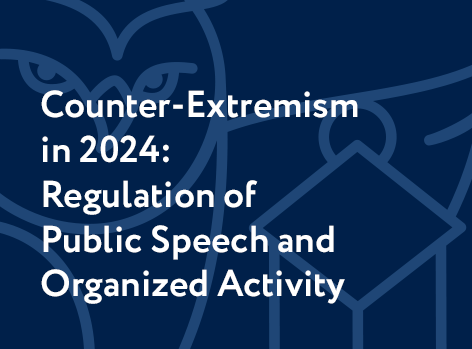SOVA Center for Information and Analysis took part in the the OSCE Dublin Conference on Internet Freedom (June 18-19, 2012). Here we publish the recommendations made by the center’s speaker Natalia Yudina.
Our recommendations relate to an area that seems to us to be especially problematic. This area is the interrelation of countermeasures to hate speech on the Internet and defense of freedom of expression on the Internet.
We recommend:
To OSCE:
1. Continue the series of specialized events on two inter-related themes – countermeasures to Internet hate speech and the defense of freedom of expression on the Internet.
2. Organize expert discussions with the participation of specialists on Internet technology, in order to prepare reference materials on the comparative qualities of various methods of limiting access to one or another kind of undesirable content.
It is also necessary to systematize accounting methods to determine the actual audience of particular content, depending on the method and place of its distribution on the Internet.
This type of reference material is necessary in order to raise the level of discussion on the theme of countermeasures to Internet hate speech on a societal level, as well as on a political and administrative level.
To Participating Countries:
1. Do not make special restrictions on freedom of expression on the Internet on a legislative level.
Existing standards in this area are sufficient.
2. In legislation related to illegal public statements, avoid general language that allows for wide interpretation. In regard to hate speech, only those statements that are made publicly and either directly or indirectly incite violence or severe forms of discrimination should be criminalized
Other manifestations of intolerance should be allowed in public debate. This will only make the argument against them more effective.
3. Clarification is needed, for law enforcement agencies and courts, that the societal risk of inflammatory public statements is entirely dependent on the size of the audience to which it was addressed. Also needed are technical clarifications on how to realistically assess the audience of a particular statement, depending on the method and place of its distribution on the Internet.
Without this kind of clarification, Internet law enforcement becomes extremely arbitrary, rendering it ineffective.
4. Do not rely on mechanisms that block access to particular illegal content. Only in specific circumstances (for example, in schools,) these mechanisms do not create undue restrictions and can be effective (and even then, only partially.)
Countering hate speech on the Internet should be based:
First, in the prosecution of those who systematically conduct dangerous, incendiary propaganda;
Second, in agreements with other countries and representatives of Internet industries on how to remove content on the basis of breach of Terms of service (TOS.)
To Organizations of Civil Society:
1. Cooperate with representatives of Internet industries with the goal of eradicating inflammatory and xenophobic content on the basis of violations of Terms of service (TOS.)
This form of countermeasure to racism and other socially dangerous phenomena on the Internet is not censorship, as it is based on a voluntary agreement.
2. Maintain an active public polemic against the spread of racism and other socially dangerous phenomena on the Internet.
This kind of discussion, as a rule, is a more effective tool than appealing to law enforcement agencies. In addition, such appeals may often lead to undue restrictions on the rights and freedoms of citizens, including those of third parties.
Contacting law enforcement agencies with complaints of inflammatory statements should be done only in cases where there is confidence in their illegality and the reality of their danger to society.



